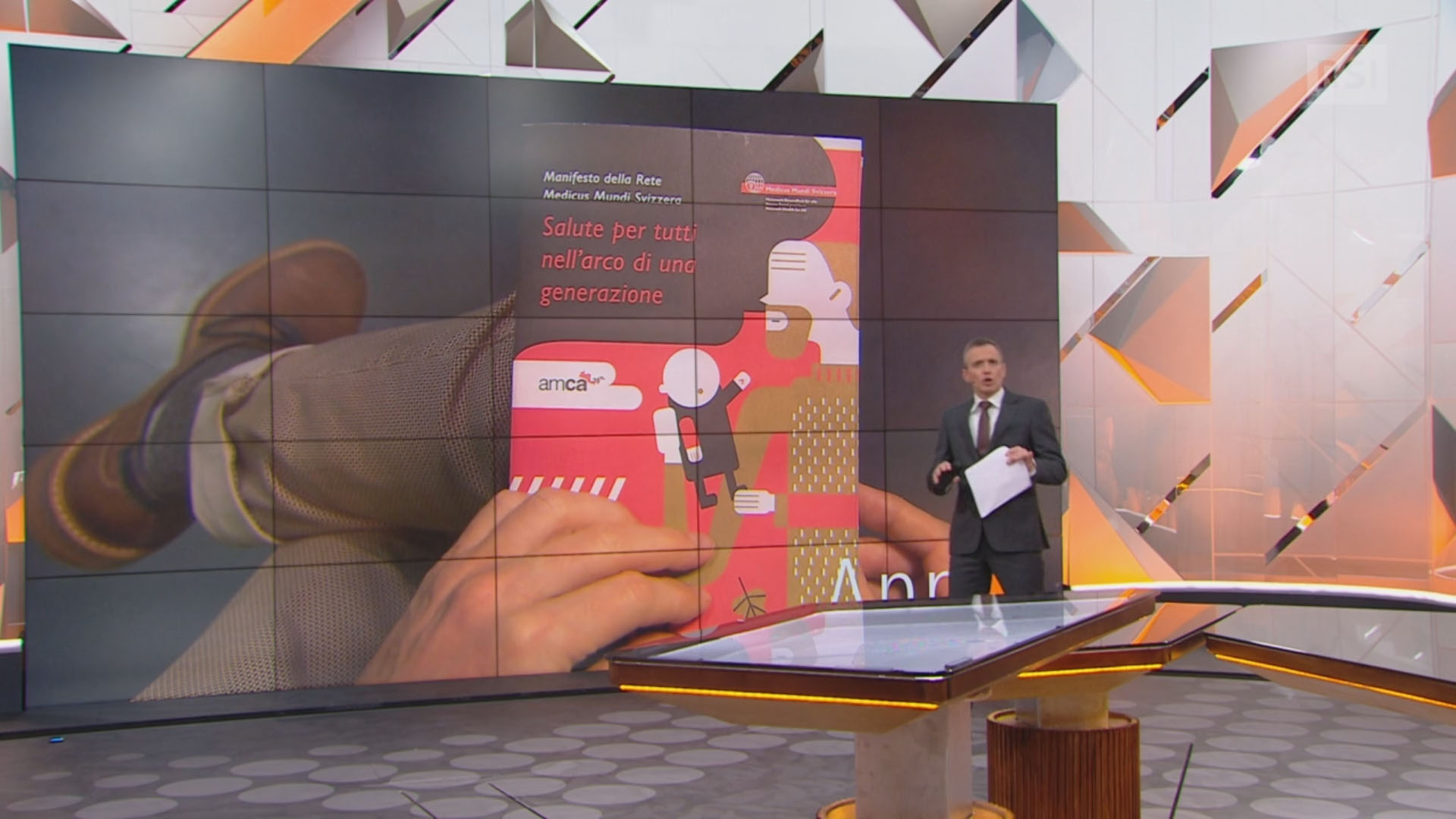 Since the end of 2018 we’ve got it on our tables – this beautiful booklet with the title “Health for All within a Generation”. Writing the so called Manifesto of Medicus Mundi Switzerland (MMS) was one of the Network’s extraordinary activities last year. What looks now like a quite light text had to be developed in a complex way together with the almost 50 very diverse member organisations. It is a product of a deeper reflexion process that is linked to MMI’s work on effective health cooperation.
Since the end of 2018 we’ve got it on our tables – this beautiful booklet with the title “Health for All within a Generation”. Writing the so called Manifesto of Medicus Mundi Switzerland (MMS) was one of the Network’s extraordinary activities last year. What looks now like a quite light text had to be developed in a complex way together with the almost 50 very diverse member organisations. It is a product of a deeper reflexion process that is linked to MMI’s work on effective health cooperation.
The process was initiated by the MMS’ board with the idea to take the opportunity of the Alma-Ata-jubilee for reflecting on today’s significance of primary health care and the future of health for all fundamentally. The necessity to do this developed out of the knowledge that with the UN Agenda 2030 the fundamental parameter of our work had changed. And there was as well the feeling that international health cooperation as well as Switzerland’s economic and political practise have to change for reaching health for all.
By this it was already clear that political decision makers and our own community of people and organisations working in the field of international health cooperation should be addressed by the Manifesto. The process of developing the manifesto was almost as important as the final product itself. The first draft version was written by a small core group including board members and representatives of member organisations. Defining the current situation and the obstacles for reaching health for all was a quite easy task. The political demands have been written easily. We could count on our constant work in the political field.
The key message of the manifesto is clear and powerful: Health for all within a generation is achievable. Today’s world has the knowledge how to do it – and it has the resources to reach it. We know the political, economic and social barriers that have to be moved away for reaching the goal.
Challenging ourselves
Once this was agreed and stated, it proved to be definitively more complex to address those issues where the civil society actors are in the driver seats themselves. Is our own work as effective as it should be for reaching health for all? Are we delivering the solutions – or are cementing structures that impede to overcome inequities? Questioning your own work is always hurtful in one or the other way. For going through this part of the process it was very helpful to rely on the debate that was already led by Medicus Mundi International and written down in the 2016 discussion paper “Health Cooperation: Its relevance, legitimacy and effectiveness as a contribution to achieving universal access to health”. Several of the questions of the discussion paper addressing NGOs working in the field of international health cooperation were dirctlxy taken up as part of a workshop that was facilitated by Medicus Mundi International. Results of the workshop were integrated in the Manifesto and approved during an assembly of the member organisations in September.
Transforming the role of international health cooperation
Reaching health for all within a generation won’t be possible without addressing and transforming our own role as actors in the international health cooperation. Under the title “It is not a matter of aid, it is a matter of justice” this difficult positioning on the own role and the willingness to work for change is expressed quite clearly: “As organisations active in public health, we know that, above and beyond individual aspects, it is the social, economic and environmental factors that determine whether or not someone falls ill. It is undisputed that the degree of inequality determines the state of a population’s health. Against this backdrop, we are aware that our own work can contribute to the perpetuation of injustice. Nevertheless, we cannot, and will not, leave anyone alone in misery without help.”
The Manifesto concludes on this: “However, we also realise that, in association with our partners here in Switzerland and around the world, we need to tackle and change the conditions that make people ill. We can and will strengthen our work further in this regard, learn from our partners and empower the local populations with which we work to fight for their rights and against discrimination within their own communities.”
The Manifesto serves from now on as reference work for upcoming new strategic periods of Medicus Mundi Switzerland and it is as well the fundament for our political work. It has already shown its public relevance: In February 2019 the Italian speaking service of the Swiss Television has dedicated ten minutes to the Manifesto.
……………………..
MMS Manifesto (2018): Download PDF
MMI Discussion paper (2016): Download PDF
Contribution by Medicus Mundi Switzerland to MMI Annual Report 2018
